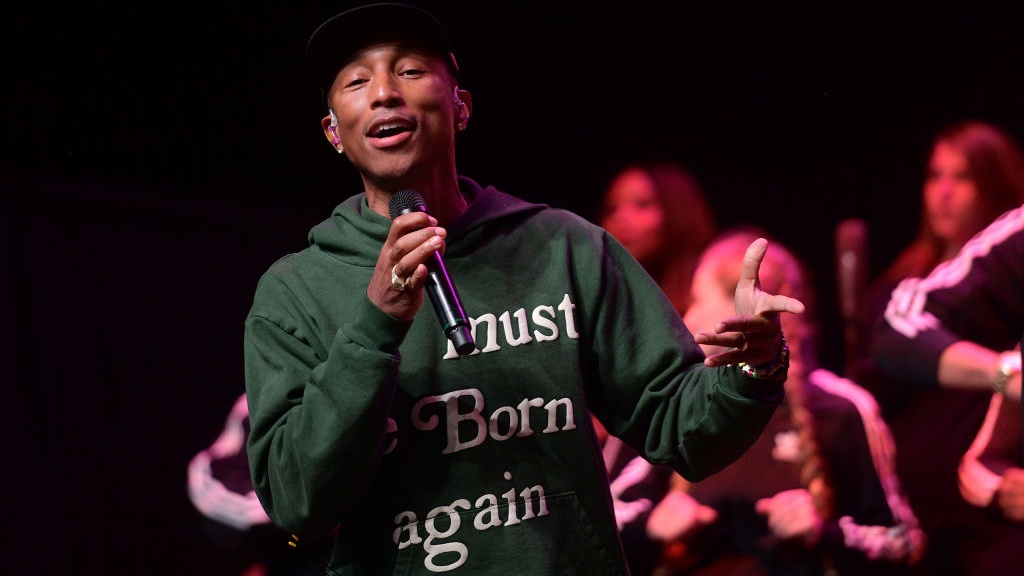For the latest issue of Time magazine, award-winning musician Pharrell Williams was brought in to facilitate an innovative series of discussions between rising stars and legends.
I couldn’t be more grateful to curate “The Next American Revolution”—a special issue of @TIME Magazine that envisions a Black Future in an America where all people are actually created equal.https://t.co/nLYgIOU7xo
pic.twitter.com/AkL8NioD5f— Pharrell Williams (@Pharrell) August 20, 2020
For "The New American Revolution" special issue, Williams paired some of the greatest Black leaders in the country for pragmatic debates about pushing forward after a summer of protests and a pandemic.
In a statement, Williams compared the current protest movement to the demonstrations that took place before the outbreak of the Revolutionary War, citing an infamous line from the Declaration of Independence that embodies much of what people are saying now.
“In every stage of these oppressions we have petitioned for redress in the most humble terms. Our repeated petitions have been answered only by repeated injury,” America's founding fathers wrote days before protesters began ripping down statues in honor of King George.
"When I see people tearing down the monuments to secessionist traitors who wanted to start their own white-supremacist nation, I see patriots acting in service of this country," Williams wrote in the latest Time issue.
"Those 'thugs' would serve under the direction of George Washington in the American Revolution," he added.
In his article, Williams writes about the beginnings of slavery in America, its economic impact on the country today and how it feels to be born and raised in Virginia Beach where the first slaves landed in the United States in the early 1600s.
"Like most Black Americans, I understand that all exists only in the augmented-reality goggles available to shareholders, power brokers and those lucky enough to get in on the initial public offering. But the ongoing protests for equity and accountability that have overtaken cities across the nation have made me feel something new that I can only describe with one word: American," he wrote.
"So, in assembling this project, I asked some of the most qualified people I know in every field—from Angela Davis to Tyler, the Creator, to Representative Barbara Lee—to talk with us, and with one another, about the way forward. I wanted to convey a vision of a future filled with the artists, creators and entrepreneurs who can fulfill the promise of this country’s principles," he added.
Williams worked with Time international art director Victor Williams to bring in Nneka Jones, a 23-year-old artist known for her innovative work with embroidery on canvas, to create the cover.
“Every time she pushes the needle through the canvas, it’s an act of intention that mirrors the marching, the protests, the push to form a more perfect union. It’s deliberate. It’s painstaking. It’s long. It’s hard. Each one of those stitches is a single person’s story, a single person’s travails. That’s why we wanted to make the stitches visible,” Victor said.
The issue features 14 pieces by Black people and includes op-eds and curated conversations.
Angela Davis speaks about protests with Yara Shahidi while Rep. Barbara Lee discusses policy with Democratic congressional nominee Jamaal Bowman. Kenya Barris and Tyler, The Creator chop it up on the topic of artistic freedom for Black people while five-star basketball recruit Mikey Williams and Naomi Osaka discuss the role of Black athletes in society.
The issue also includes a new song from Williams and Jay-Z as well as a first-person account on trans issues from Imara Jones, financial advice from 21 Savage and leadership notes from Danielle Geathers, the first Black woman to be elected student body president at the Massachusetts Institute of Technology.
"The activists who tossed chests of tea into the ocean to protest economic injustice were patriots. But they were also oppressors, unwilling to extend the freedoms for which they fought to everyone. America’s wealth was built on the slave labor of Black people: this is our past. To live up to America’s ideals, we must trust in a Black vision of the future," Pharrell wrote.
